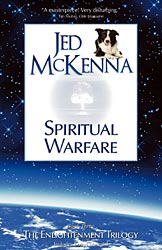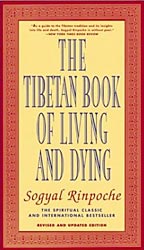 
We all know we're going to die, but almost nobody
expects that it can happen now at this very moment. Memento Mori —
"Remember you will die" — is a powerful exercise that
can help you awaken from the dream state, it may be the finishing touch
when you're done with Autolysis.
This is a newly written
page and English is not my native language.
If you detect mistakes or incorrect grammar, please contact
me.
Denial of Death
Memento Mori, 'Remember that you will die', means
that with everything you do you are aware of the simple but inescapable
fact that you will die. Every step you take could be the last one
and each exhalation may simply never be succeeded by inhalation.
Most people don't want to deal with their own mortality on a conscious
level because they find it a lugubrious idea, and many people aren't
even aware that they don't want to deal with it. But life, our life,
your life, is nothing but a preparation for the final thing we're
all going to do here on earth: die!
The quotes used on this page are from "Spiritual Warfare"
by Jed McKenna, unless otherwise noted. In this third book
of his "Enlightenment Trilogy" McKenna discusses
Memento Mori and how this can be used as an exercise to awaken in
and from the dream state.
I am not quoting his words to indicate that because they
are the words of McKenna it 'therefore' must be true, but
purely because McKenna has already written it and to me it is nonsense
to write exactly the same again; that would be like reinventing the
wheel.
Jed McKenna writes:
"We live in fear of death. We don't want to think
about it, we don't want to look at it, we don't even want to acknowledge
that it exists. We just want to go about our lives and not be reminded
of our mortality, so we try to minimize it in three ways.
One, death is not for a long time and we'll probably be too senile
to care; two, it's not an end like it seems, it's just a transition
to something else; and three, we keep ourselves perpetually distracted.
Between these three denial tactics, death is not an important presence
in our lives. It's with us every moment, but never in front of us
where we have to look at it and think about it. This is how we keep
death out of sight, behind us instead of in front of us. This is
how we maintain the state of death-denial that allows us to go about
our lives in a state of virtual unconsciousness."
We arrange our lives in such a way that it is impossible to think
about what life really is and what is really true. We fill it to the
max with activities and things we label 'important ', 'necessary'
or 'nice and cozy' in order to not make room for the opportunity to
see what is rather than what is not.
Let alone we take time to think about 'death', about the simple fact
that we only have one absolute certainty: this body with which we
move around on this earth and in this life will one day die —
we only don't know when that will be. You are going
to die! In twenty years, ten years, five years, next month, next week,
tomorrow or now, but you will die! That is an absolute certainty!
We cram our life with work, activities at home, family, sports, shopping,
books, music, movies, television, addictions, hobbies, travel, religion,
spirituality, and so on. All are merely distractions with the purpose
of not accepting that absolute definitive fact: we all will die!
Jed McKenna writes:
"We spend our lives and our life-force running
away from this monster we call death. This state of incessant denial
takes all our time and energy. That's where our lives go, that's
how we spend them. That's what it means to be asleep within the
dream."
If the denial of death means that we are asleep in the dream, then
recognition of death in all its facets must provide a chance
to wake up in and from the dream.
Recognition of Death
We're all going to die! This may happen ten years from now,
maybe thirty years from now, but it can also happen right now. You
can drop dead reading this and then your life in this form on earth
has ended.
Back to McKenna:
"Death gives definition to life. Death-awareness
is life-awareness. Death denial is life denial.
This isn't about death in the abstract, it's about death in the
most personal, intimate sense; your death. Death is de meaning in
the dream, the dream state shadow of no-self. Death is the boogeyman.
You can't kill him or hide from him or get away from him, you can
only turn toward him or away from him."
You can convince yourself that you won't die or death is still very
far away. You can convince yourself death does not exist or death
doesn't matter, or death is an unavoidable necessary evil and something
you need not think about. But all you do is denying the foundation
of life.
If the final result of 'something' is the reason and the purpose of
that 'something', and death is the final result of life, then death
is the reason and the purpose of life and we only live to die. To
deny this is to deny life.
Conscious living is only possible when you are absolutely permeated
of the fact that you will die. Not out of fear but out of love. Embrace
the fact that you will die, embrace death itself, for death is the
only reason why there is life. The fact that everything around you
will die, including yourself, is the only reason why you believe you
are alive.
Memento Mori as Method
Michel de Montaigne says in "The Essays of Michel
de Montaigne":
"Let us deprive death of its strangeness, let
us frequent it, let us get used to it; let us have nothing more
often in mind than death... We do not know where death awaits us:
so let us wait for it everywhere. To practice death is to practice
freedom. A man who has learned how to die has unlearned how to be
a slave."
You should be aware of the fact that you can die now and
be aware of it anytime of the day, or even better, be aware that you
could already be dead now. Look death in the eyes, shake
his hand and welcome him; pour a cup of tea for him and tell him how
happy you are that he's there.
Sogyal Rinpoche writes in "The Tibetan Book of Living and Dying"
the following about what some Tibetan masters teach about the "fragility
of life":
"They tell each of us to reflect on ourselves
as a condemned prisoner taking our last walk from our cell, a fish
struggling in the net, an animal lining up for its end in the slaughterhouse.
Others encourage their students to imagine vivid scenarios of their
own death, as part of a calm and structured contemplation: the sensations,
the pain, the panic, the helplessness, the grief of their loved
ones, the realization of what they have or have not done with their
lives."
Sogyal concludes with the words:
"It is important to reflect calmly, again and
again, that death is real, and comes without warning."
If you want to awaken in or from the dream state, it can be a powerful
exercise to investigate death and get to know him.
Ask yourself:
— What is death?
— What does death look like?
— How does death feel?
— How does death smell?
— Where is death?
— Why is there death?
— What happens after death?
— Where will I be after death?
— What is it like to die?
— What is it like to be dead?
Those last two questions are particularly powerful as an exercise!
Imagine yourself vividly...
— What it is like to die!
— What it is like to be dead!
I'll let Jed McKenna do the talking again:
"Buy yourself a burial plot and have your lunch
there every day. Order your headstone. Study photos of people like
yourself, now dead. Read books about death and suicide. Carry poison
in your pocket and contemplate it often. Walk along high ledges.
Lie down on railroad tracks and read poetry. Put a loaded gun in
your mouth and cock it.
I guess all this sounds extreme, but I don't see how anything could
be too extreme. Put yourself in close proximity to death. Every
hour, every day, you want to be taking time to immerse yourself
in the mindset of death-awareness, of the fact that the clock is
ticking, that every day is one day less, that every breath you take
is one breath less.
Develop the habit of thinking of death every time you look at a
watch or clock, every time you sit down to a meal, every time you
go to the bathroom. Take a walk alone every day and think about
what it means to be alive, to walk, to see and hear, to breathe.
It's not an exercise, it's not something you're trying to make yourself
believe like an affirmation, it's something that's real and central
to your every thought and act.
Death awareness is the universal spiritual practice. It's not just
another mood-making spiritual technique that you dabble with for
a few weeks and blame yourself when it doesn't deliver. Death always
delivers.
Death is your only true friend, the only friend that will never
abandon you and that no one can take away. It slices through every
lie, ridicules every belief, mocks every vanity and reduces ego
to absurdity. He's sitting with you right now. If you want to know
something, ask him. Death doesn't lie."
Awakening in the dream state is understanding
that the world in which we think we live is untrue; awakening from
the dream state is to realize that there is no reason to believe that
there is a world in which we live. In both cases, we see the bullshit
for the bullshit it is.
Death can show us what is true and what is bullshit. Death shows us
that everything is finite. Nothing remains. Everything passes and
disappears. Death shows us the impermanence and transience of life
and everything that is impermanent and transient is untrue.
The ego-mind, Maya, or whatever you want to call the illusion, does
not want that to happen and that's why the ego-mind does
not want us to deal with death. That's why Maya offers us
distraction upon distraction, and that's why we in pure panic,
even manically, try our best to deny or play down death
Because of this most people never get beyond the by ego-mind delineated
boundaries of the illusion; not just during their life but also after
their death. Memento Mori breaks through these delineated
boundaries and that is why Memento Mori is such
a powerful exercise.

Recommended Reading:
 |
 |
Spiritual Warfare
by
Jed McKenna |
The Tibetan Book of Living and Dying
By
Sogyal Rinpoche |
|



















 |





















